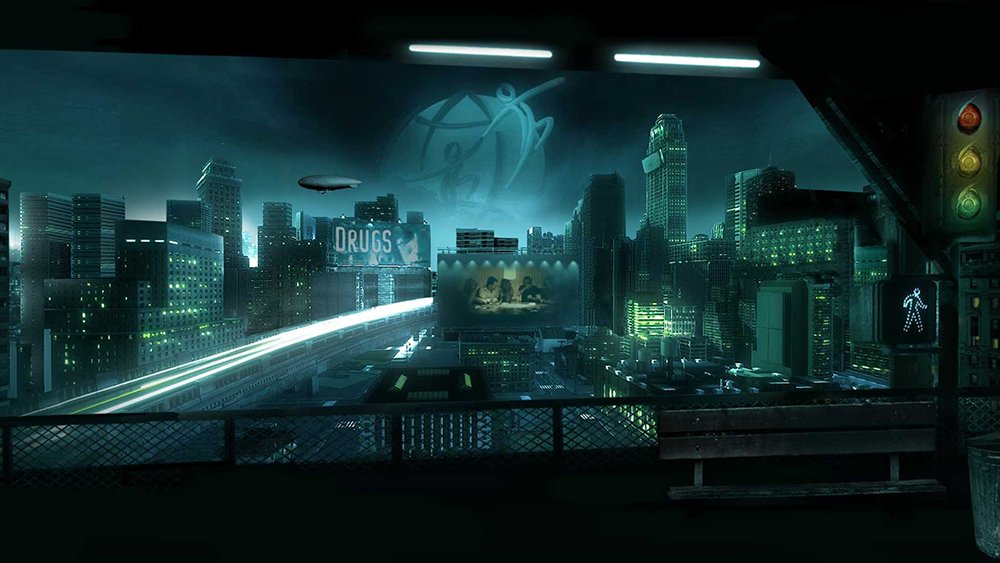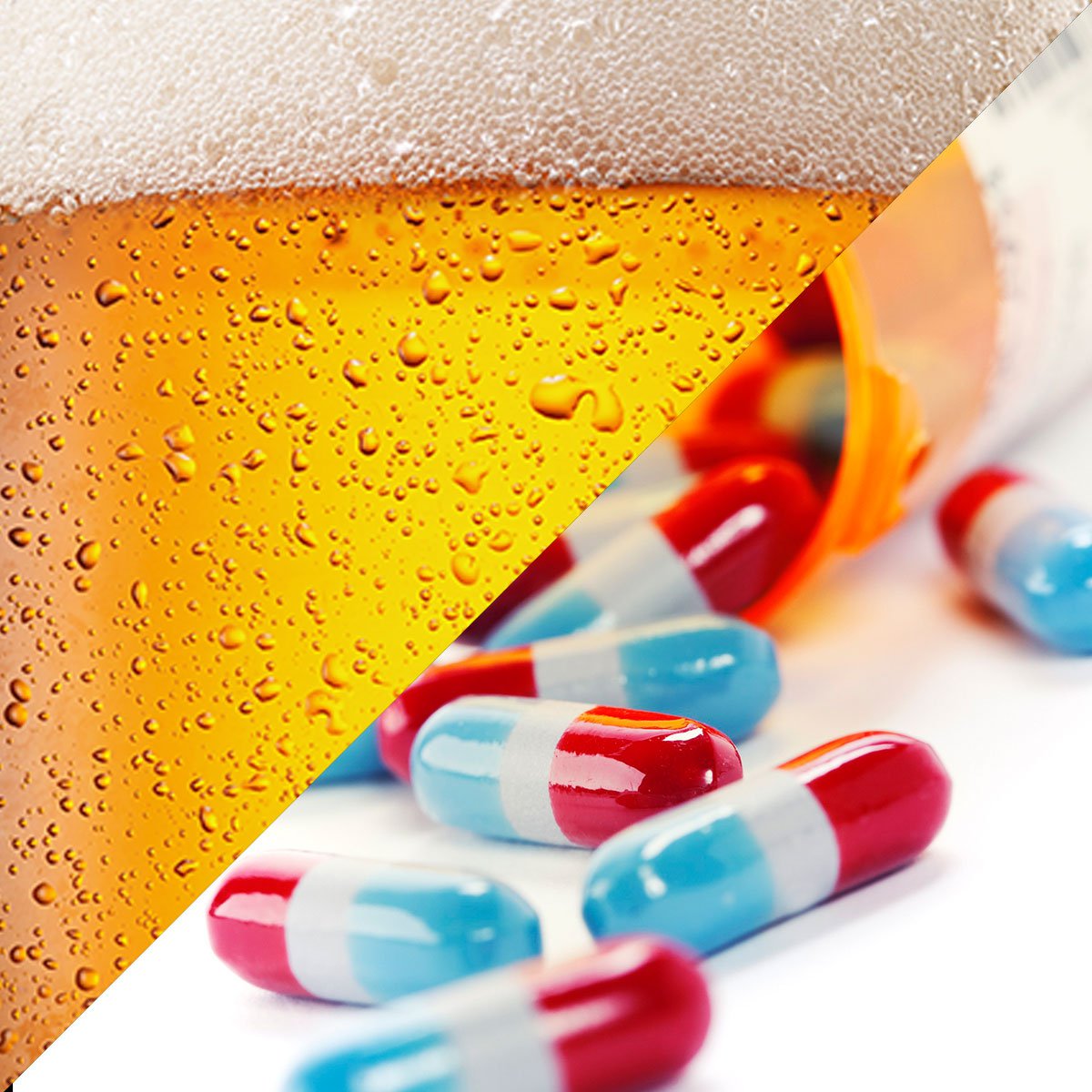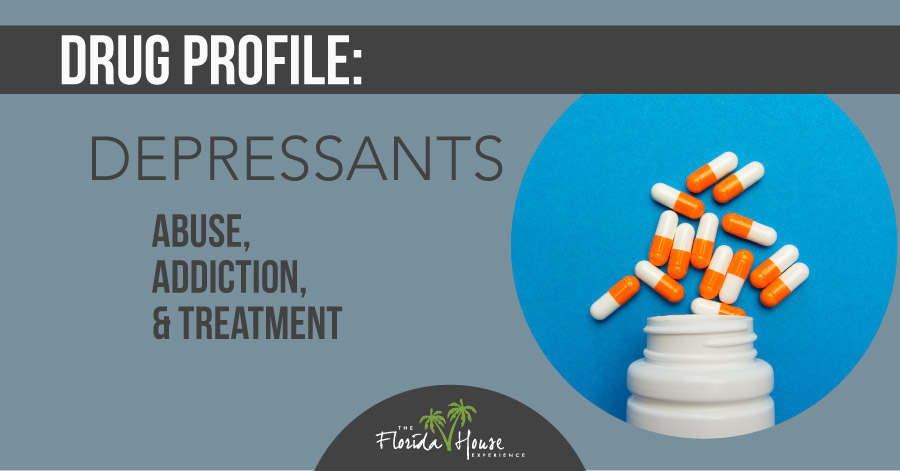1. What Are Depressants? Examples & Effects of ... - Drug-Free World
Depressants such as Xanax, Klonopin, Halcion and Librium are often referred to as “benzos” (short for benzodiazepines1). Other depressants, such as Amytal, ...
Watch Truth About Drugs Documentary Video & Learn About Substance Addiction. Get The Facts About Painkillers, Marijuana, Cocaine, Meth & Other Illegal Drugs.

2. Depressants - Alcohol and Drug Foundation
For example, alcohol is drunk and benzodiazepines are usually swallowed - but they can also be injected. Generally, depressants can be swallowed, drunk, ...
Explore depressants, their effects on the central nervous system, and risks. Understand safe usage and find resources for support.

3. 7 Drug Categories | International Association of Chiefs of Police
Examples of CNS depressants include alcohol, barbiturates, anti-anxiety tranquilizers (e.g., Valium, Librium, Xanax, Prozac, and Thorazine), GHB (gamma ...
Click the title above to learn more

4. Cocaine Abuse & Addiction - NYC.gov
What is Cocaine? ... Cocaine is a powerfully addictive stimulant that directly affects the brain. Cocaine has been labeled the drug of the 1980s and '90s, because ...
Find the right drug or alcohol abuse treatment program with the Substance Abuse Treatment Facility Locator.
5. Stimulants, Depressants and Hallucinogens - Adis QLD
Alcohol, cannabis, benzodiazepines, heroin and other opioids. How do they work? Depressant drugs slow down the functioning of the brain. They typically relieve ...
What drugs are stimulants?
6. Hallucinogens - CAMH
Types of hallucinogens: LSD, mescaline, psilocybin, PCP, cannabis, ecstasy, ketamine, salvia and others. The term hallucinogen refers to many different drugs, ...
Hallucinogens are psychedelic drugs that can potentially change the way people see, hear, taste, smell or feel, and also affect mood and thought.
7. Drug Misuse and Addiction | National Institute on Drug Abuse (NIDA)
10 jul 2020 · This initial euphoria is followed by other effects, which differ with the type of drug used. For example, with stimulants such as cocaine ...
What is drug addiction? Addiction is defined as a chronic, relapsing disorder characterized by compulsive drug seeking and use despite adverse consequences.† It is considered a brain disorder, because it involves functional changes to brain circuits involved in reward, stress, and self-control. Those changes may last a long time after a person has stopped taking drugs.11
8. Signs that someone may be using drugs. - Positive Choices
Search by User Types ... Drugs have different effects depending on the type of drug taken and whether it is a depressant (e.g. alcohol) or a stimulant (e.g. ...
This factsheet provides information that can assist readers in recognising the signs of drug use.

9. Stimulants vs. Depressants: Differences & Similarities
28 nov 2022 · Common Depressant Drugs. Depressants come in several different ... drugs, and different types of prescription anxiety medications. They ...
Information on the difference between stimulants and depressants. Learn the similarities and differences of these common drugs.

10. Inhalants Research Report: Letter from the Director.
1 feb 2011 · Although many parents are appropriately concerned about illicit drugs such as marijuana, cocaine, and LSD, they often ignore the dangers ...
Although many parents are appropriately concerned about illicit drugs such as marijuana, cocaine, and LSD, they often ignore the dangers posed to their children from common household products that contain volatile solvents or aerosols. Products such as glues, nail polish remover, lighter fluid, spray paints, deodorant and hair sprays, whipped cream canisters, and cleaning fluids are widely available yet far from innocuous. Many young people inhale the vapors from these sources in search of quick intoxication without being aware that using inhalants, even once, can have serious health consequences.
11. The Short and Long-Term Effects of Hallucinogens - New Hope Ranch
Consuming hallucinogenic drugs runs the risk of experiencing long-lasting effects like chronic anxiety and paranoia. For treatment, call New Hope Ranch ...
Consuming hallucinogenic drugs runs the risk of experiencing long-lasting effects like chronic anxiety and paranoia. For treatment, call New Hope Ranch today.

12. What Are Gateway Drugs? Information and Prevention - Drugrehab.com
Gateway drugs are substances that can often lead to harder, more dangerous drugs. Find out what evidence supports the gateway drug theory. Find examples of ...
Gateway drugs are substances that can often lead to harder, more dangerous drugs. Find out what evidence supports the gateway drug theory. Find examples of supposed gateway drugs and ways to prevent alcohol and drug abuse.

13. Depressants: Addiction, Side Effects, Treatment Info - FHE Health
26 mei 2024 · Here's a closer look at some of the commonly used types. Barbiturates, which were commonly used in the mid-1900s, include drugs such as ...
What is a depressant and what does it do to treat depression? Understand the types, symptoms, side effects, and treatment. Contact FHE Rehab to learn more.

14. Four Categories of Drugs and their Effects | Morningside Recovery
5 mei 2014 · Hallucinogens, narcotics, stimulants, and depressants are addictive and can produce withdrawal symptoms when a user stops taking them.
There are four categories of drugs. Each drug category has unique side effects and different withdrawal symptoms that impact recovery choices and options. To learn more, reach out to Morningside Recovery at 855-416-8202.
15. 1 Give ONE reason why marijuana may be classified as a depressant
16 mei 2024 · https://brainly.com/question/40340139. Answer Link. VIEW ALL ANSWERS ( 16 ... drugs.A. Making more of the enzyme needed in a metabolic pathwayB ...
í½íãƱ(øÛóe:tÕ-l üh69=:£lé^YÒµÆöe"P$1 4 v¢:bÅ»ÿ÷×>ÀFø¼É>ÉF} ¨oìQÜVXj²²²²²ª²²²2ÿö³o^½þþÛÏÁ²XÅ/=Çÿ1L8þ®óâ àùÁü Q£øCtÀ7_2ó4·ËXÁ,z³ +¸3æy4P` Ñ:CyâùET¢]¡®Ðeç&B·ë4+: H%Åeç6 åen¢ 9äGDITD0vò ÆèÒë¹]°ÉQF~ÃYY´hµYñP+¸å=·££"DyEë"J{÷[j+XÂ,GÅeçϯï¥ë,]£¬Ø]vÒŤØGÌ(µfð[¤]hìÝ°KhrÅ\SË¢Xç³³ÛÛ[¿·Y